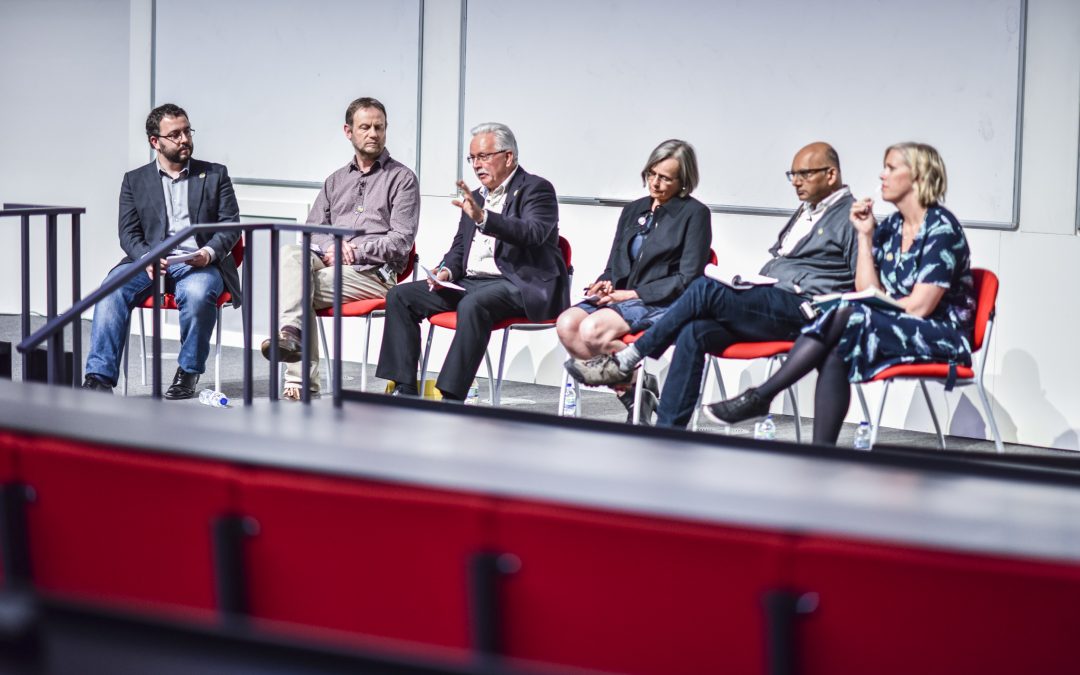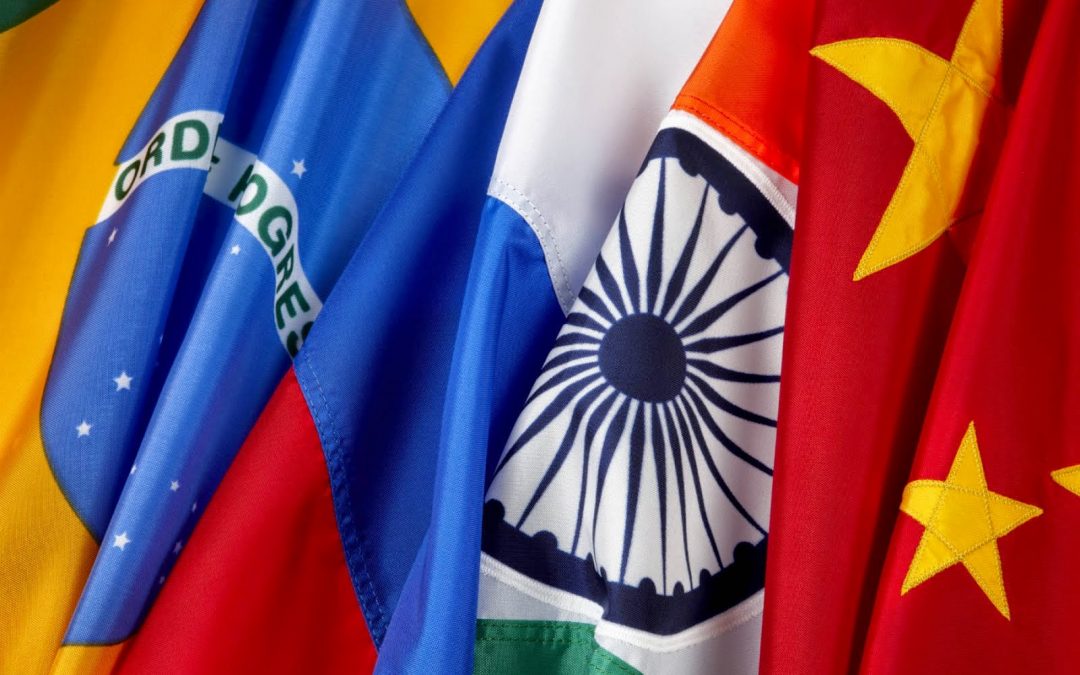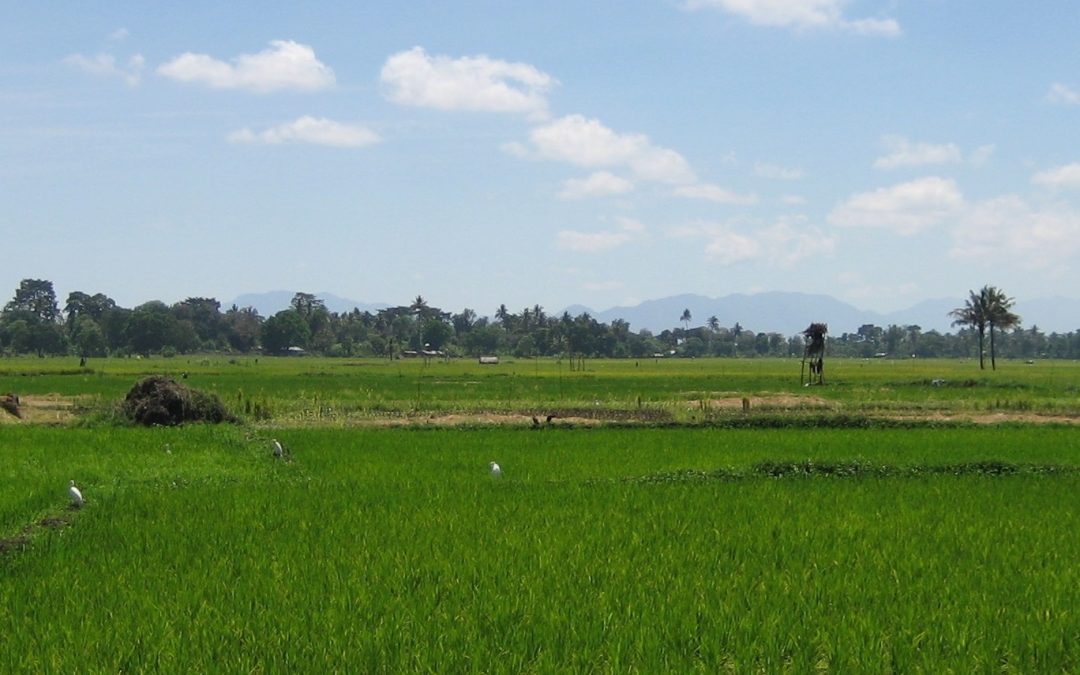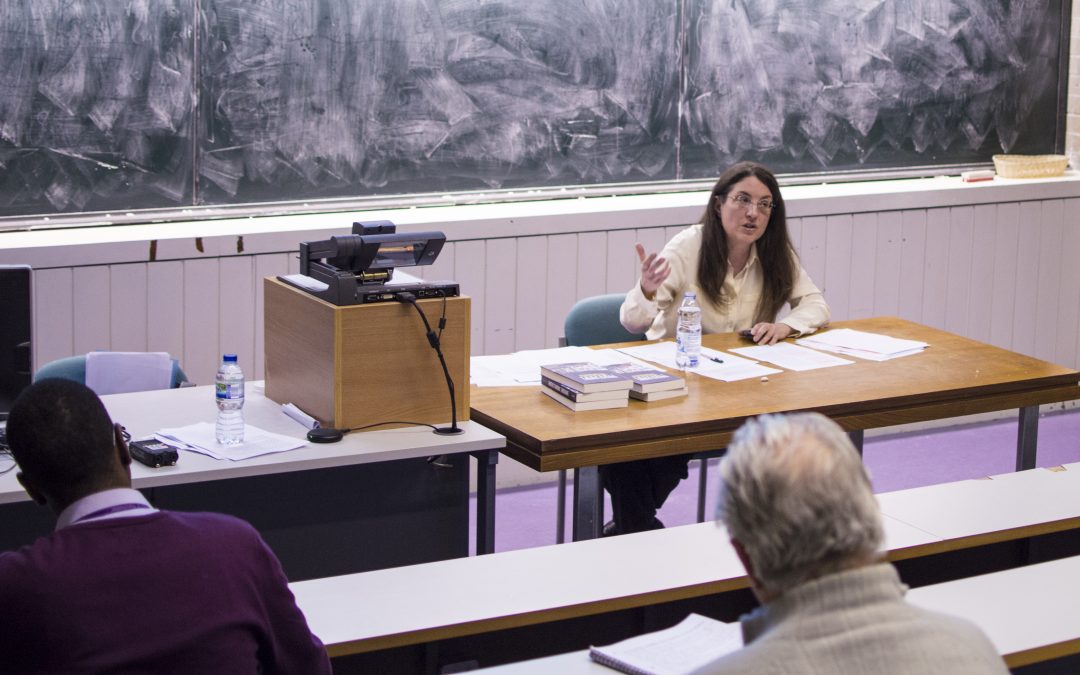
Our academics on the future of development studies and other difficult questions
To celebrate the end of the academic year we brought together leading academics from the Global Development Institute in a lively session. Fielding questions from the class of 17-18 our academics answer questions on the reality of development theory vs practice, the future of disruptive tech and ICT4D, and the concept of inequality.
The session was compared by Pablo Yanguas and features Diana Mitlin, David Hulme, Richard Heeks, Khalid Nadvi and Helen Underhill.

Rwanda and Arsenal: Why a budding developmental state is sponsoring a football team
By Dr. Pritish Behuria, Hallsworth Research Fellow
On 23 May, The Rwandan Development Board announced that it had signed a ‘Visit Rwanda’ sleeve sponsorship deal – worth around 10 million pounds a year for three years – with Arsenal F.C., the world’s best football club (I am clearly not an Arsenal fan). Many were surprised by this news. Most of all, Dutch Members of Parliament and politicians. De Telegraaf – a Dutch newspaper – published a story, quoting one Dutch MP who said, “I am indignant that a country where we provide solid financial assistance has now become a whopping €30million shirt sponsor of a major English football club.” The country’s aid minister, Sigrid Kaag, has been tasked with looking into the deal and reporting back to the Dutch parliament. Critics of the Rwandan government have also latched on to this news, arguing that the money would be better spent elsewhere.

Is there hope for the Russian economy? Stephen Sackur interviews Sergei Guriev
This week BBC Hardtalk’s Stephen Sackur interviews leading Russian economist Sergei Guriev, for the latest in the Rising Powers and Interdependent Futures podcast series.
They talk about the problem that Russian economy is facing with corruption and the need for deep structural reform, alongside the potential Russia has given its educated citizens and natural resources.

Policy Brief: Farmer-led irrigation in Africa
‘Farmer-led’ irrigation may exceed all ‘official’ schemes, effectively doubling the amount of irrigated land in sub-Saharan Africa.
This policy brief identifies the implications for irrigation policy and agricultural management, summarising the opportunities and challenges arising from the development of farmer-led irrigation.

What Makes Aid Effective with Pablo Yanguas and Daniel Honig
What limits the impact of foreign aid programmes? If frontline workers had freedom to experiment could aid effectiveness be improved? What in the aid bureaucracy and political environment constrains flexibility? David Hulme & Nicola Banks lead this exciting discussion with ESID’s Pablo Yanguas, author of new book ‘Why we lie about aid’ and Daniel Honig of Johns Hopkins University, author of new book ‘Navigation by judgement: why and when top down management of foreign aid doesn’t work’.

Can India overcome inequality and corruption? Stephen Sackur interviews Kaushik Basu
This week BBC Hardtalk’s Stephen Sackur interviews Kaushik Basu, the former chief economist at the World Bank and economics advisor to the Indian government for the latest in the Rising Powers and Interdependent Futures podcast series.
Basu discusses the implications of India’s incredible growth, but ballooning inequality. At the top end, salaries are close to those in OECD countries, while the country is still home to more people living in poverty than any other.
He talks about the culture of corruption within India, the enduring bureaucratic legacies of British rule and the effects of de-monetisation on society.

GDI Lecture Series: Understanding Zimbabwe with Sara Rich Dorman
Sara Rich Dorman gave a lecture entitled ‘Understanding Zimbabwe: from liberation to authoritarianism’ You can listen to the podcast, or watch the lecture below.

Rising Inequality Hurts: When Growth Occurs, the Poorest Benefit the Least
Varsha S. Kulkarni is at Harvard University, Cambridge, MA, U.S. and Raghav Gaiha is (Hon.) Professorial Research Fellow, Global Development Institute, University of Manchester, Manchester, England
Plutarch was right when he said that an imbalance between rich and poor is the oldest and most fatal ailment of all republics. Much has been written to demonstrate that income inequality hurts the poor. However, following Piketty’s magnum opus, Capital in the Twenty-First Century, the focus has shifted to rapid growth of income shares of the top 1 % concurrently with growth in the developed countries. In a more recent contribution, Chancel and Piketty (2017) offer a rich and unique description of evolution of income inequality in India in terms of income shares and incomes in the bottom 50%, the middle 40% and top 10% (as well as top 1%, 0.1%, and 0.001%), combining household survey data, tax returns and other specialised surveys. read more…

How mobile technology has supported farmers in Kenya
Global Development Institute researcher Dr Richard Duncombe is the editor of a new book sharing research and practice on current trends in digital technology for agricultural and rural development in the Global South.
The population of the Global South is growing rapidly. As populations grow so do requirements for food and nutrition and improvements in agricultural productivity and sustainability are essential conditions for development to take place. Some regions of the Global South have seen greater success than others in terms of agricultural growth, with low agricultural productivity attributed to lack of knowledge of up-to-date technologies and practices, as well as issues such as climate change. In recent years, to face these challenges, there has been growing activity around use of digital technology for agricultural and rural development in the Global South, to address knowledge gaps, and to establish the building blocks for new rural services. read more…

Can Brazil get back on track? Stephen Sackur interviews Alex Schwartsman
In this week’s Rising Powers and Interdependent Futures podcast series, BBC Hardtalk’s Stephen Sackur interviews Alex Schwartsman is a Brazilian economist and former Director of International Affairs of the Central Bank of Brazil.
The interview examines the genesis of Brazil’s recent economic and political crisis. Schwartsman argues that Brazil is trapped by a large government apparatus where policy making has captured by special interest groups, both in the private and public sector.
While he supports the Bolsa Familia anti-poverty transfer programme, he’s extremely critical of Brazil’s bloated social security system, arguing that the country is a “European social democracy trapped in the body of an emerging economy.”
read more…
